
ACI 2000: The Modern Heartbeat of Bamako
ACI 2000 is a vibrant and modern neighbourhood in the bustling city of Bamako. Known for its contemporary architecture, this area is a hub for business, culture, and leisure. As you wander through its wide streets and well-planned avenues, you will discover a mix of modern office buildings, luxury hotels, and stylish residential complexes. Visitors to ACI 2000 can enjoy a variety of dining options, ranging from upscale restaurants offering international cuisine to local eateries serving delicious Malian dishes. The neighbourhood is also home to several shopping centres, where you can find everything from high-end fashion to artisanal crafts. For those interested in culture and history, ACI 2000 offers easy access to some of Bamako’s key attractions. The National Museum of Mali, with its fascinating exhibits of Malian art and history, is just a short drive away. Additionally, the area hosts numerous art galleries, showcasing the works of both established and emerging artists. Overall, ACI 2000 is a dynamic and cosmopolitan area that offers a unique blend of modernity and tradition, making it an essential part of any visit to Bamako.
Local tips in ACI 2000
- Visit the National Museum of Mali early in the day to avoid crowds and enjoy a more relaxed experience.
- Try local Malian dishes at smaller eateries for an authentic taste of the cuisine.
- Wear comfortable walking shoes as ACI 2000 is best explored on foot.
- Take a stroll around the neighbourhood in the evening to enjoy the lively atmosphere and beautiful night-time views.
ACI 2000: The Modern Heartbeat of Bamako
ACI 2000 is a vibrant and modern neighbourhood in the bustling city of Bamako. Known for its contemporary architecture, this area is a hub for business, culture, and leisure. As you wander through its wide streets and well-planned avenues, you will discover a mix of modern office buildings, luxury hotels, and stylish residential complexes. Visitors to ACI 2000 can enjoy a variety of dining options, ranging from upscale restaurants offering international cuisine to local eateries serving delicious Malian dishes. The neighbourhood is also home to several shopping centres, where you can find everything from high-end fashion to artisanal crafts. For those interested in culture and history, ACI 2000 offers easy access to some of Bamako’s key attractions. The National Museum of Mali, with its fascinating exhibits of Malian art and history, is just a short drive away. Additionally, the area hosts numerous art galleries, showcasing the works of both established and emerging artists. Overall, ACI 2000 is a dynamic and cosmopolitan area that offers a unique blend of modernity and tradition, making it an essential part of any visit to Bamako.
Iconic landmarks you can’t miss
1001 Wonders
Discover a vibrant mix of shopping, culture, and tradition at 1001 Wonders in Bamako, Mali. Open daily, a shopper's paradise!
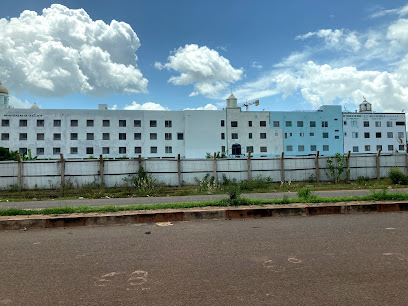
Monument of Independence
Discover Bamako's iconic Monument of Independence, a symbol of Mali's resilience, unity, and rich cultural heritage.
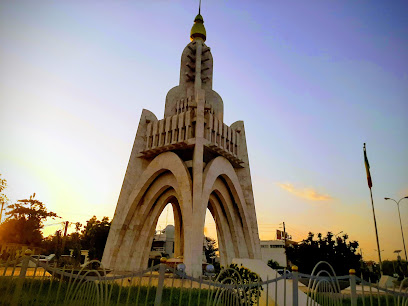
Monument de la Paix
Discover Bamako's iconic Monument de la Paix, a symbol of Mali's journey towards unity and a beacon of hope for the future.
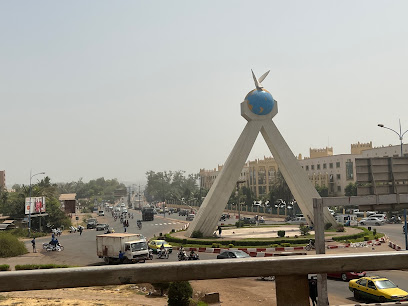
Monument Nkouamé Nkruma
Discover Bamako's tribute to Kwame Nkrumah, a symbol of African unity and independence, offering a serene escape and cultural immersion.
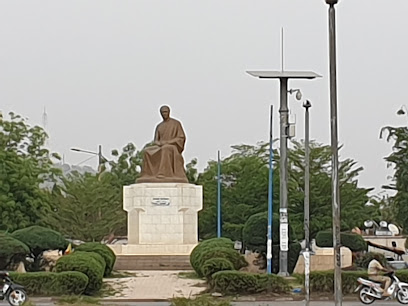
Mémorial Modibo Kéita
Explore the Mémorial Modibo Kéita in Bamako, a landmark honoring Mali's first president and the nation's path to independence.
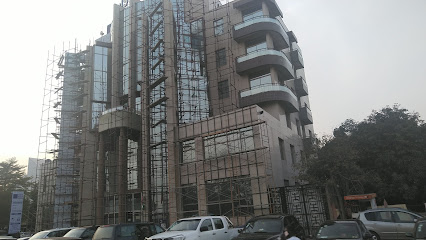
Mosquée de l'ACI 2000
Discover the modern Islamic architecture and serene atmosphere of Bamako's Mosquée de l'ACI 2000, a cultural and religious landmark.
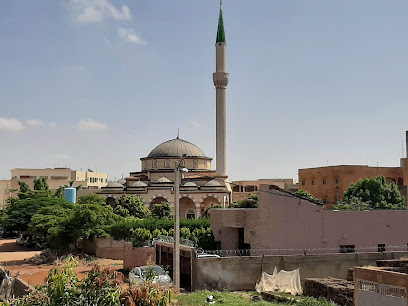
L'obélisque des idéogrammes
Discover Mali's rich cultural heritage at L'obélisque des idéogrammes in Bamako, a monument showcasing intricate designs and symbols.
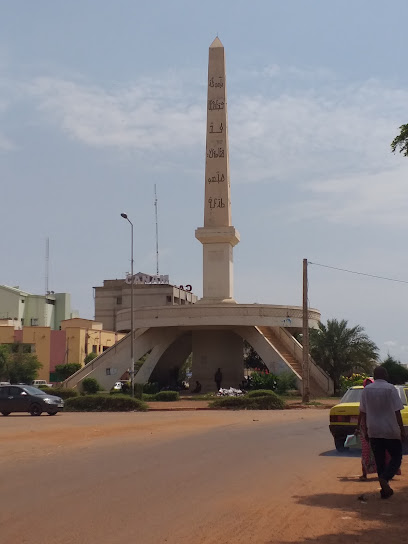
Grande Mosquée d'ACI 2000
Discover Bamako's iconic mosque, a blend of Saudi Arabian and West African architectural influences, and a vibrant center of Islamic faith.
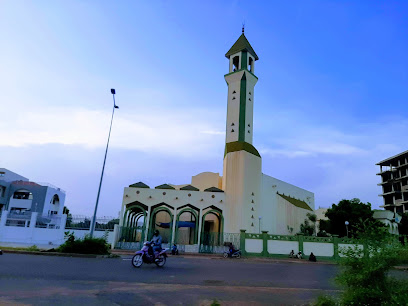
Rond-point place de la CAN
Experience the vibrant culture of Bamako at Rond-point Place de la CAN, a hub of art, cuisine, and community spirit in Mali's capital.
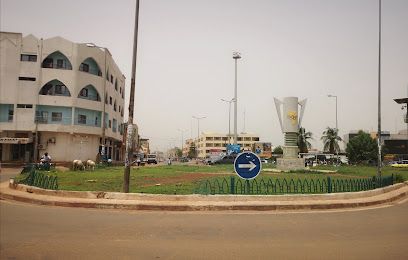
La rue d'Allah, la maison d'allah
Discover the serene beauty and spiritual significance of La rue d'Allah, a cultural landmark in the heart of Bamako, Mali.
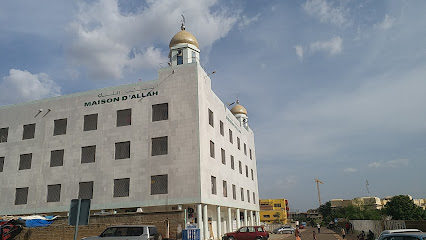
Essential places to dine
Restaurant Guaduman
Experience the vibrant flavors of Mali at Restaurant Guaduman – where tradition meets taste in Bamako's culinary scene.
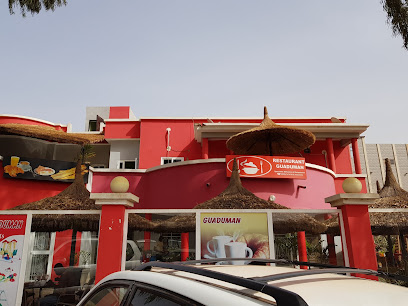
Nubian Lounge
Discover the flavors of Mali at Nubian Lounge - where tradition meets contemporary dining in Bamako.
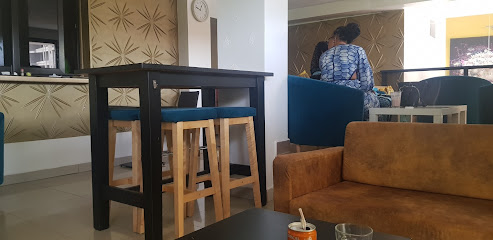
Zouglou de Aci 2000
Discover authentic Malian cuisine at Zouglou de Aci 2000 in Bamako – where every meal tells a story.
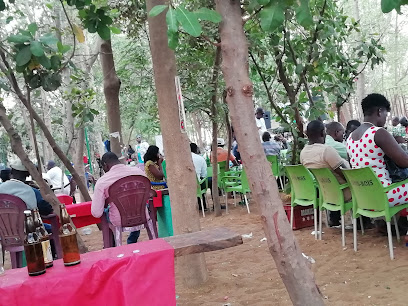
Restaurant Aux Grands Lacs
Experience authentic Malian cuisine at Restaurant Aux Grands Lacs - where every dish tells a story.
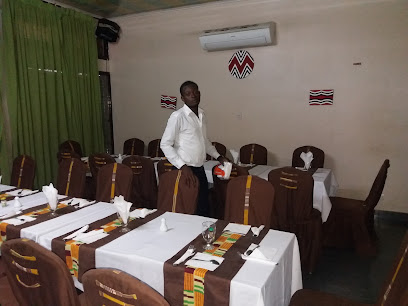
Ivorian Restaurant
Experience authentic Ivorian cuisine in Bamako at this charming restaurant offering traditional dishes that celebrate West African flavors.

Restaurant African Queen
Experience authentic African cuisine at Restaurant African Queen in Bamako – where every meal tells a story.
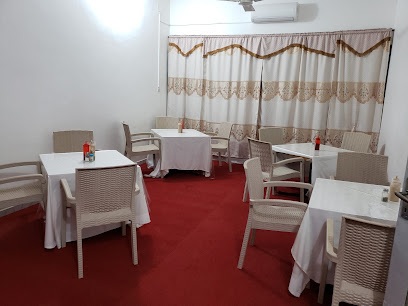
Restaurant sous bois
Discover authentic Malian cuisine in the heart of Bamako at Restaurant sous bois - where every dish tells a story.

RESTAURANT FEEL FRESH BAMAKO CITY
Savor authentic Malian cuisine at Restaurant Feel Fresh in Bamako's lively ACI 2000 district – where every meal is a celebration of flavor.
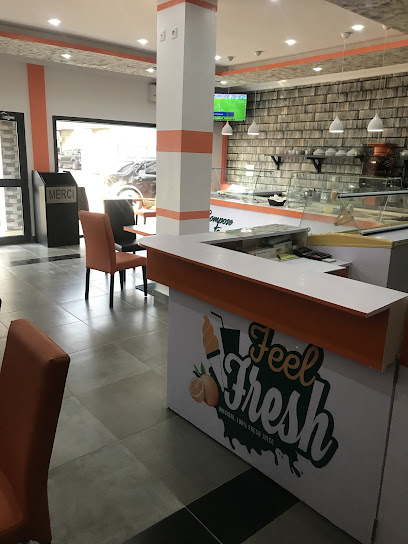
Restaurant Sénégalais Sans Rivale
Experience the authentic taste of Senegal at Restaurant Sénégalais Sans Rivale in Bamako - where tradition meets flavor.
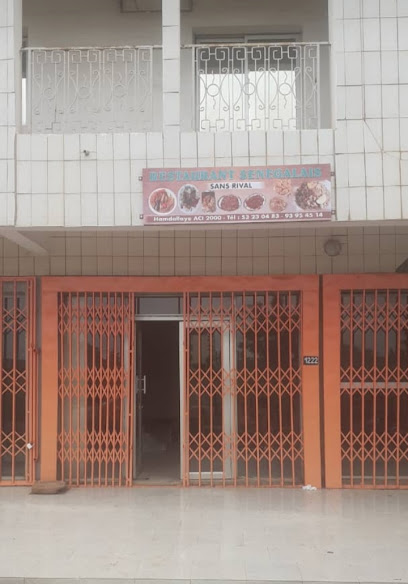
Le Kalao Restaurant
Experience authentic Malian cuisine at Le Kalao Restaurant in Bamako – where tradition meets flavor in a vibrant dining atmosphere.

Markets, malls and hidden boutiques
1001 Wonders
Explore Bamako's 1001 Wonders: A cultural shopping experience blending local and international flavors in a vibrant marketplace.
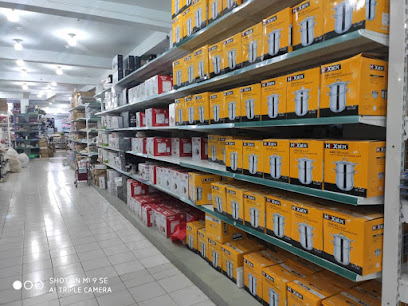
ORCA
Discover Bamako's ORCA shopping mall, a vibrant hub for unique souvenirs, delicious dining, and a taste of local culture.
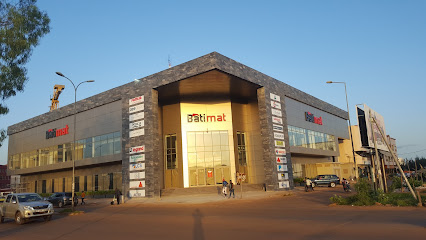
Hamdallaye ACI 2000
Discover the best of Bamako shopping at Hamdallaye ACI 2000, where local culture meets modern retail in a vibrant atmosphere.
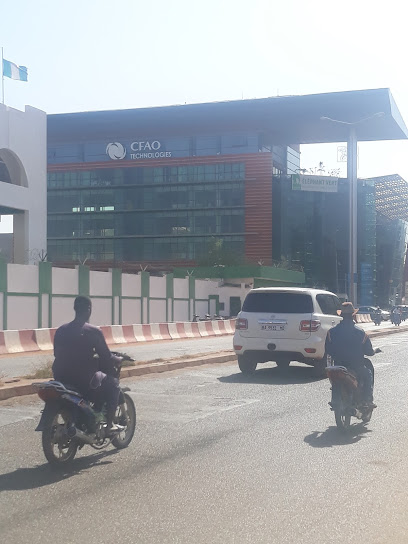
Home Decor
Explore vibrant home decor treasures in Bamako, showcasing local craftsmanship and unique styles that reflect Mali's rich culture.
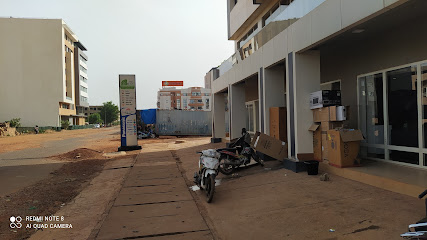
Super Vainqueur ACI
Explore the vibrant fashion of Mali at Super Vainqueur ACI - your destination for unique clothing styles and cultural treasures in Bamako.
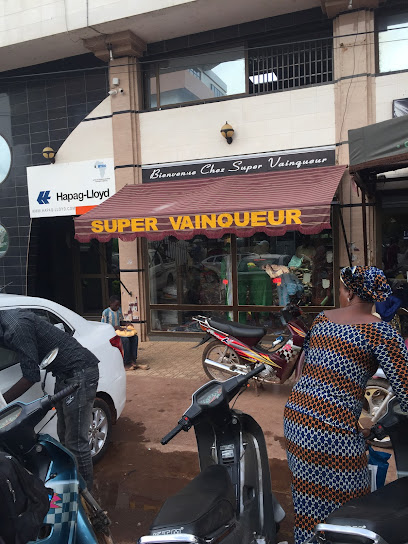
Diplomatic Shop by Mali Duty Free
Discover luxury shopping in Bamako at the Diplomatic Shop by Mali Duty Free, where unique Malian treasures and designer goods await.
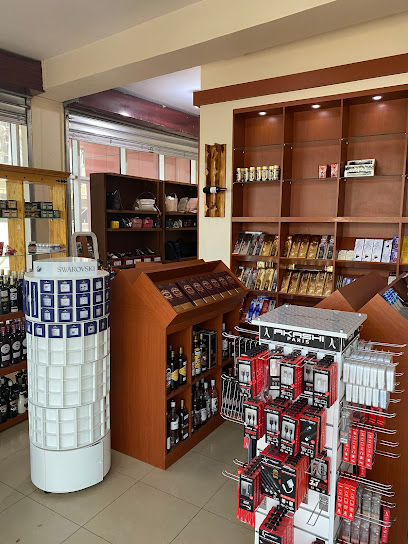
Galérie Fère Kènè AJA Mali
Explore the vibrant artistry of Mali at Galérie Fère Kènè AJA, where unique crafts and cultural treasures await every visitor.
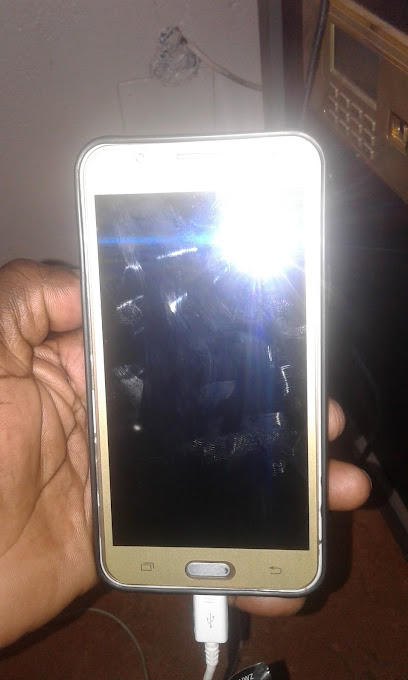
Boutique ARDO
Explore the vibrant essence of Malian fashion at Boutique ARDO, a premier clothing store in Bamako offering unique local designs and craftsmanship.
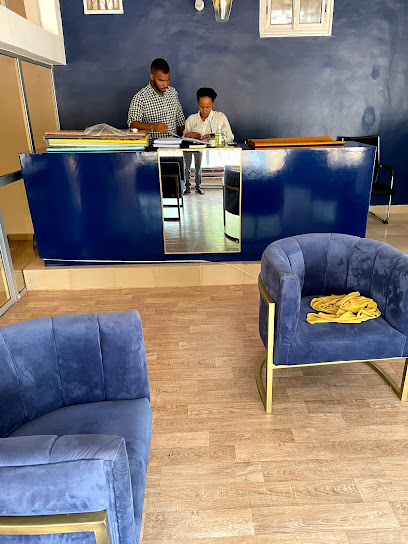
Fashion Store Bamako
Explore the stylish offerings of Fashion Store Bamako, where local culture meets contemporary fashion in the heart of ACI 2000.

Empereur boutique ACI 2000
Experience the essence of Malian fashion at Empereur Boutique ACI 2000, a stylish clothing store in the heart of Bamako, perfect for every traveler.
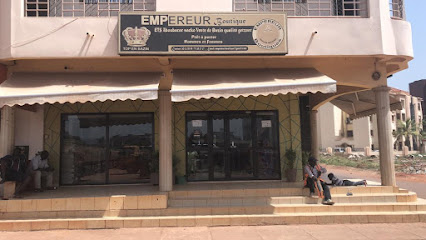
Essential bars & hidden hideouts
After Bamako Resto & Lounge
Experience the vibrant nightlife and authentic flavors of Bamako at After Bamako Resto & Lounge, a perfect spot for unwinding and socializing.
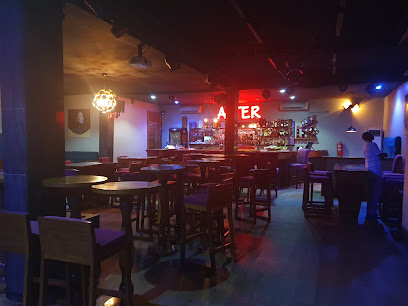
INDIGO
Experience the vibrant flavors of Bamako at INDIGO, where local cuisine meets international flair in a welcoming atmosphere.
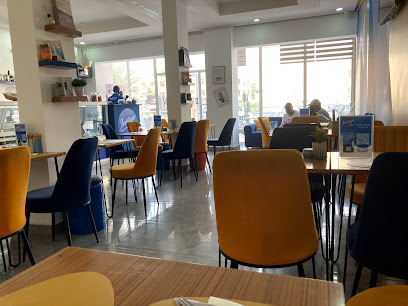
Nubian Lounge
Experience the vibrant culinary landscape of Bamako at Nubian Lounge, where traditional flavors meet contemporary dining in a lively atmosphere.
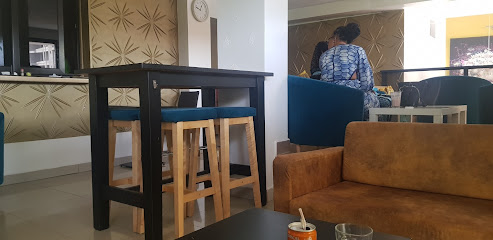
Le Rooftop Bamako
Experience the vibrant fusion of local flavors and stunning city views at Le Rooftop Bamako, the perfect dining destination in Mali's capital.
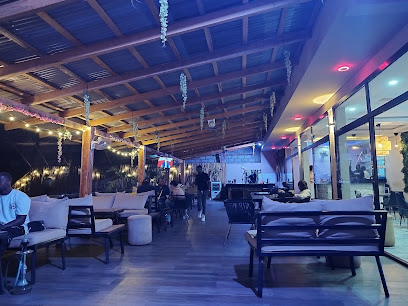
Resto/bar Chez Ange
Savor the best of Malian cuisine at Resto/bar Chez Ange, a must-visit restaurant in Bamako, offering a blend of local flavors and a vibrant atmosphere.
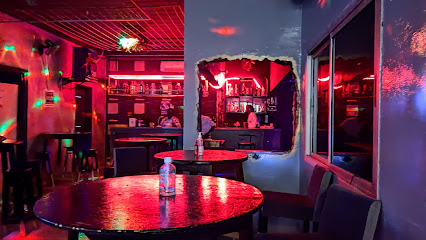
Porvince Bar
Discover the vibrant nightlife at Porvince Bar in Bamako, where drinks flow and friendships grow in a lively atmosphere.
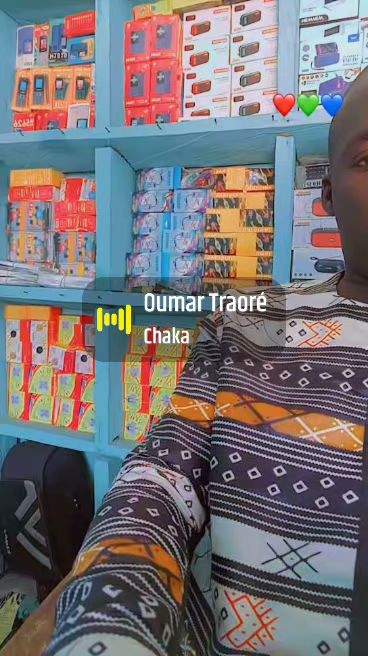
Huqqa
Discover the vibrant nightlife of Bamako at Huqqa, a lively bar offering a unique blend of local drinks and a welcoming atmosphere.
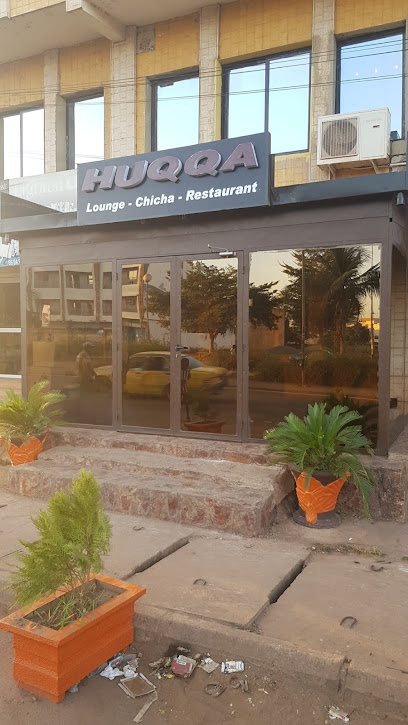
BLACK AND WHITE (Bar-Café)
Discover the vibrant ambiance of BLACK AND WHITE Bar-Café in Bamako, where local flavors and a lively atmosphere meet.
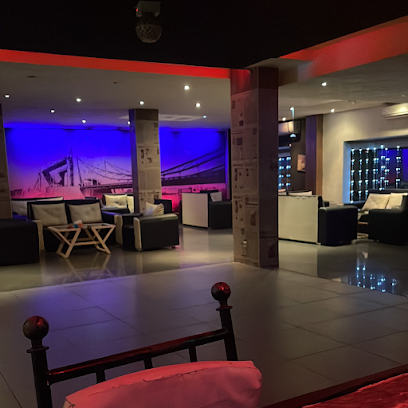
Le baroque
Experience the vibrant atmosphere of Le Baroque in Bamako, a cozy lounge serving delicious drinks and snacks in a culturally rich setting.
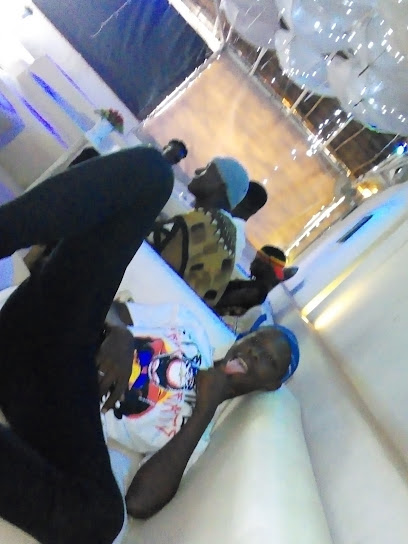
AliBaba
Experience the vibrant nightlife at AliBaba Lounge in Bamako, where local flavors meet a lively atmosphere perfect for relaxation and socializing.

Local Phrases
-
- HelloI ni ce
[ee nee che] - GoodbyeTere tere
[teh-reh teh-reh] - YesOo
[oh] - NoAya
[ah-yah] - Please/You're welcomeAw ni ce
[ow nee che] - Thank youI ni sogoma
[ee nee soh-goh-mah] - Excuse me/SorrySamake
[sah-mah-keh] - How are you?I ni ce?
[ee nee che] - Fine. And you?I ka kene?
[ee kah keh-neh] - Do you speak English?O taa Englisi ka taa?
[oh tah ehng-lee-see kah tah] - I don't understandM'ba faga
[em-bah fah-gah]
- HelloI ni ce
-
- I'd like to see the menu, pleaseM'ni faga menu ka taa
[em-nee fah-gah meh-noo kah tah] - I don't eat meatM'ba be sogow ka
[em-bah beh soh-gohw kah] - Cheers!A kene!
[ah keh-neh] - I would like to pay, pleaseM'ni faga kelen, ka taa
[em-nee fah-gah keh-lehn kah tah]
- I'd like to see the menu, pleaseM'ni faga menu ka taa
-
- Help!Ka kelen!
[kah keh-lehn] - Go away!Ko kelen!
[koh keh-lehn] - Call the Police!Ko polisi kelen!
[koh poh-lee-see keh-lehn] - Call a doctor!Ko dokotola kelen!
[koh doh-koh-toh-lah keh-lehn] - I'm lostM'ka ta la
[em-kah tah lah] - I'm illM'ba ta
[em-bah tah]
- Help!Ka kelen!
-
- I'd like to buy...M'ni faga se...
[em-nee fah-gah seh] - I'm just lookingM'ba taa la
[em-bah tah lah] - How much is it?Mogo dama ye?
[moh-goh dah-mah yeh] - That's too expensiveI ka dama ye ye
[ee kah dah-mah yeh yeh] - Can you lower the price?Ka la kelen ye?
[kah lah keh-lehn yeh]
- I'd like to buy...M'ni faga se...
-
- What time is it?Mogo den ye?
[moh-goh dehn yeh] - It's one o'clockI ka kelen don
[ee kah keh-lehn dohn] - Half past (10)Den ye (10)
[dehn yeh (dix)] - MorningKan bɔ
[kahn boh] - AfternoonKan saba
[kahn sah-bah] - EveningKan nyɛn
[kahn nyehn] - YesterdayKɔnɔ
[koh-noh] - TodayBi
[bee] - TomorrowSaya
[sah-yah] - 1Kelen
[keh-lehn] - 2Fɔli
[foh-lee] - 3Saba
[sah-bah] - 4Nan
[nahn] - 5Musɔ
[moo-soh] - 6Nyaɛ
[nyah-eh] - 7Kɔnɔntan
[koh-nohntahn] - 8Kɔnɔfɔli
[koh-noh-foh-lee] - 9Kɔnɔsaba
[koh-noh-sah-bah] - 10Kɔnɔnan
[koh-noh-nahn]
- What time is it?Mogo den ye?
-
- Where's a/the...?A dɔn ka...
[ah dohn kah] - What's the address?A ka dɔn ye?
[ah kah dohn yeh] - Can you show me (on the map)?Ka ka ta kɔnɔ a bɔ?
[kah kah tah koh-noh ah boh] - When's the next (bus)?A ka ta dɔn (sɔnɔ)?
[ah kah tah dohn (soh-noh)] - A ticket (to ....)Dɔn ye (ka ....)
[dohn yeh (kah)]
- Where's a/the...?A dɔn ka...
History of ACI 2000
-
ACI 2000 was established in the late 1990s as part of the urban development plan for Bamako, intended to accommodate the growing population and modernize the city. Its name reflects the aspirations for a new millennium, symbolizing progress and development in Mali's capital.
-
As Bamako expanded, ACI 2000 emerged as a commercial hub that attracted businesses and entrepreneurs. The area became known for its vibrant markets and shops, contributing significantly to the local economy. Local artisans and traders thrive in the neighborhood, showcasing the rich craftsmanship of Mali.
-
ACI 2000 is characterized by its diverse community, where various ethnic groups coexist. The neighborhood reflects Mali's rich cultural tapestry, with influences from the Bambara, Tuareg, and other ethnic communities. This diversity is celebrated through festivals, music, and communal gatherings that enhance the cultural landscape of Bamako.
-
The neighborhood is also a focal point for the arts, with several cultural centers and galleries promoting Malian music, dance, and visual arts. ACI 2000 has nurtured many artists, musicians, and dancers, making it a vibrant scene for traditional and contemporary expressions of Malian culture.
-
In recent years, ACI 2000 has seen significant infrastructural improvements, including better roads, public services, and housing. These developments aim to enhance the living conditions for residents while attracting more visitors to the area, reinforcing its status as a key neighborhood in Bamako.
ACI 2000 Essentials
-
ACI 2000 is situated in the heart of Bamako and is accessible from various neighborhoods via taxis, bike taxis (locally known as 'bicyclette'), and buses. From the city center, you can take a taxi, which typically costs around 2,000 to 5,000 CFA depending on your exact location. If you prefer public transport, several buses operate along major routes that pass through ACI 2000, making it easy to reach from neighborhoods like Badalabougou and Kalaban Coura.
-
ACI 2000 is a relatively compact neighborhood, making it easy to explore on foot. For longer distances within Bamako, taxis and shared minivans (known as 'clandos') are commonly used. There are also bike taxis available for a more local experience. Bicycles can be rented from local shops if you prefer to ride around the area at your own pace.
-
ACI 2000 is generally safe for tourists, but some precautions are still necessary. Avoid walking alone at night, especially in poorly lit areas. Although violent crime is rare, petty theft can occur, particularly in crowded places. Areas such as the outskirts of ACI 2000 and certain parts of the nearby neighborhoods are known for higher crime rates; it is advised to stay alert and avoid displaying valuables.
-
In case of emergency, dial the local emergency number, which is 17 for police and 18 for ambulances. There are hospitals and clinics within Bamako for medical assistance. It is recommended to have travel insurance that covers emergencies. For minor health issues, local pharmacies are available, and many pharmacists speak basic French.
-
Fashion: Do dress modestly, particularly in public spaces and when visiting places of worship. Avoid revealing attire. Religion: Do respect local customs; greetings like 'As-salamu alaykum' are appreciated in Muslim areas. Public Transport: Do give your seat to the elderly or pregnant women. Don't eat or drink on public transport. Greetings: Do greet with a handshake; a friendly smile goes a long way. Eating & Drinking: Do try local street food, but ensure it is cooked thoroughly. Don't refuse food offered to you, as it may offend your host.
-
To experience ACI 2000 like a local, visit the nearby markets for fresh produce and handmade crafts. Engage with local vendors and learn about their products. Participate in community events and festivals if your visit coincides with them for a deeper cultural experience. Don't hesitate to ask locals for recommendations on where to eat or visit; they are often eager to share their knowledge and experiences.
Nearby Cities to ACI 2000
-
Things To Do in Faranah
-
Things To Do in Bobo-Dioulasso
-
Things To Do in Dédougou
-
Things To Do in Voinjama
-
Things To Do in Sanniquellie
-
Things To Do in Ganta
-
Things To Do in Magburaka
-
Things To Do in Ouahigouya
-
Things To Do in Koudougou
-
Things To Do in Kenema
-
Things To Do in Gbarnga
-
Things To Do in Daloa
-
Things To Do in Wa
-
Things To Do in Port Loko
-
Things To Do in Ouagadougou





